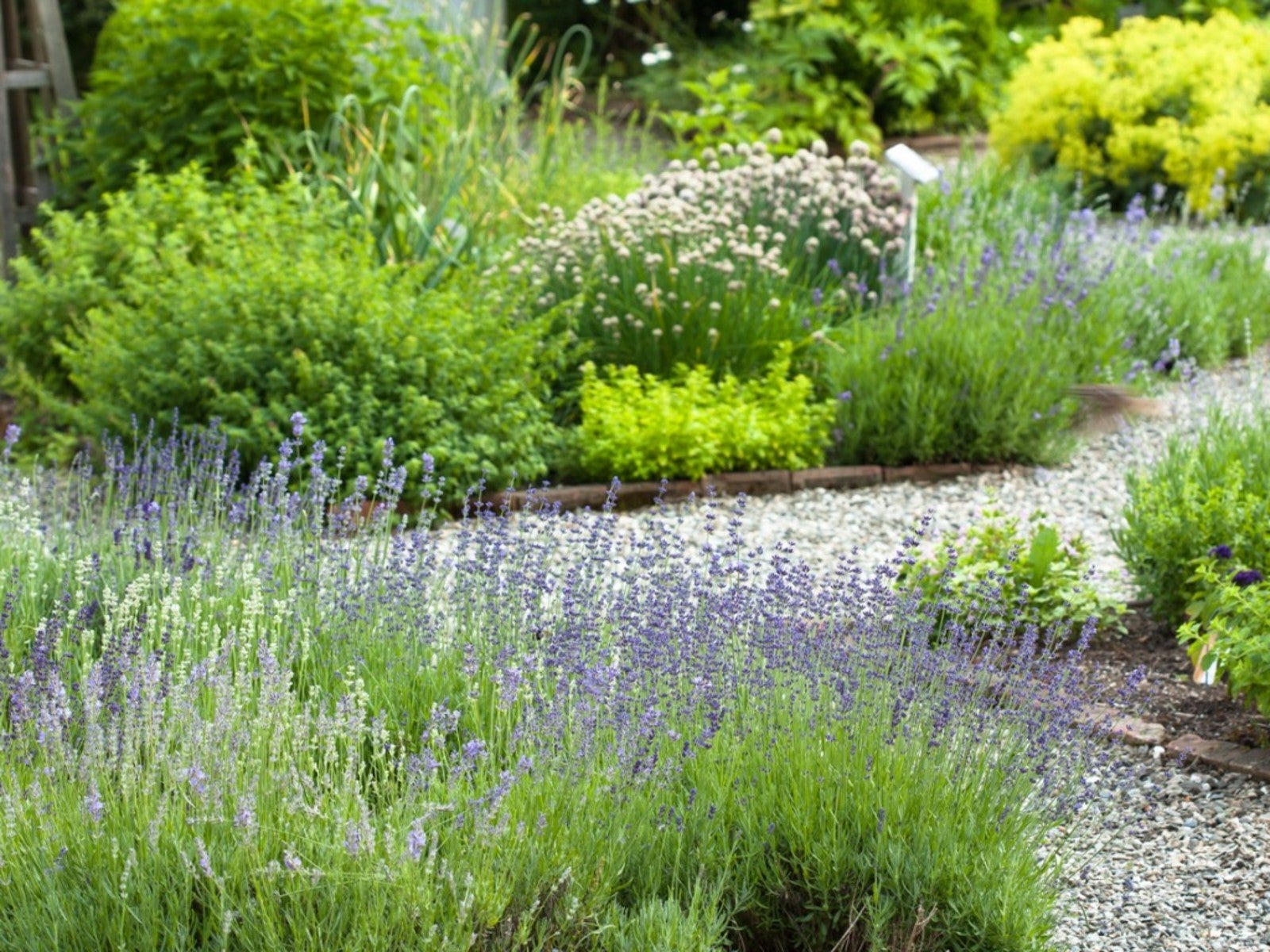Herb Spacing Chart - Tips For Spacing Between Herb Plants


Sign up for the Gardening Know How newsletter today and receive a free copy of our e-book "How to Grow Delicious Tomatoes".
You are now subscribed
Your newsletter sign-up was successful
Knowing how far apart to plant herbs is essential to their health and production. Too much crowding, and you can end up with disease or rot. Space them too far apart and you can’t fit as many plants into a space. Use an herb spacing chart or follow these tips to get it just right.
The Importance of Spacing for Herb Gardens
All plants need to be spaced correctly. The biggest problem in spacing is putting plants too close together. If the spacing between herb plants is too tight, they suffer in several ways:
- They compete with each other for nutrients.
- Any disease the develops can pass quickly from one plant to the next.
- Less airflow promotes fungal diseases and rot.
- It’s more difficult to remove weeds, which compete with the herbs for nutrients.
You can place herbs farther apart than recommended but doing so limits the number you can put in the garden. It can also look aesthetically unpleasing to have big gaps in an herb garden or bed.
Guidelines for Spacing Herb Plants
Whenever you plant a new herb, look at the recommendations for spacing. It may seem like an excessive distance, but keep in mind that spacing is based on the size of the mature plant. Here are some spacing guidelines for common herbs:
- Basil – 12 inches (30.5 cm.)
- Cilantro – 18 inches (45.7 cm.)
- Chervil – 3 to 6 inches (7.6 to 15.2 cm.)
- Chives – 12 inches (30.5 cm.)
- Dill – 12 inches (30.5 cm.)
- Lavender – 18 inches (45.7 cm.)
- Lemon verbena – 36 inches (.91 m.)
- Mint – 18 inches (45.7 cm.)
- Oregano – 9 inches (23 cm.)
- Parsley – 6 inches (15.2 cm.)
- Rosemary – 12 inches (30.5 cm.)
- Sage – 12 inches (30.5 cm.)
- Tarragon – 24 inches (61 cm.)
- Thyme – 12 inches (30.5 cm.)
Matching Herbs to Containers
Most herbs do very well in containers. Using pots is a great way to make use of limited space or to grow herbs on balconies or patios if you don’t have a garden. Generally, a container between 10 and 18 inches (25.4 to 45.7 cm.) is appropriate.
Larger is generally better, as it will encourage more growth in the roots, which leads to a bigger plant overall. If you want to put more than one plant in a container, get a large one. Make sure you only use plants together that have similar water needs.
Spacing herbs correctly will keep plants healthy and reward you with an attractive, productive herb garden.
Sign up for the Gardening Know How newsletter today and receive a free copy of our e-book "How to Grow Delicious Tomatoes".

Mary Ellen Ellis has been gardening for over 20 years. With degrees in Chemistry and Biology, Mary Ellen's specialties are flowers, native plants, and herbs.